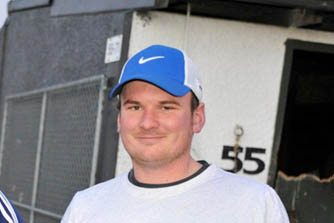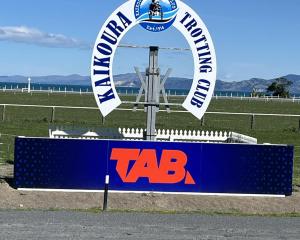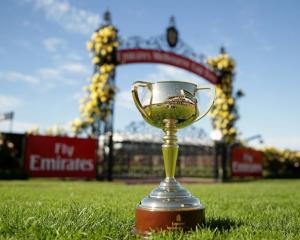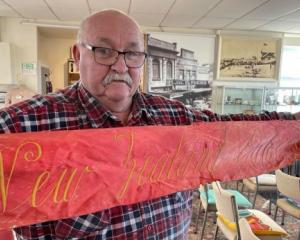
The Rangiora-based 29-year-old, who refused to attend a Judicial Control Authority For Racing hearing in Christchurch last month or be interviewed by Racing Integrity Unit investigators, learned his fate on Tuesday.
The JCA confirmed the penalty on Wednesday, with its chairman, Justice Warwick Gendall, describing Kerr's actions as "seriously corrupt".
Kerr relinquished his training licence to Harness Racing New Zealand in November last year, citing mental health grounds, as racing authorities closed in. Police subsequently launched their own investigation.
Kerr was sentenced on four charges laid by the RIU that he sold a non-existent horse and then charged its new owners for expenses, oversold shares in horses he trained, and charged his owners insurance premiums for non-existent policies.
There were multiple individual victims - as many as 50 - though the precise number has not been ascertained.
The JCA earlier heard Kerr was a prolific gambler, who lost almost $1 million through betting on harness, thoroughbred and greyhound racing with Australian betting agency Ladbrokes in the space of two years.
Gendall, in an 11-page judgment, said a life ban was the appropriate punishment.
The seriousness of Kerr’s actions “over an extended period, affecting multiple owners/clients, involving very substantial amounts of money, with egregious, appalling breaches of duties of faith and fiduciary obligations, require disqualification for life," he said.
"He is unfit to be involved in any way in the racing industry or profession."
Black Caps pace bowler Matt Henry and All Blacks midfielder Anton Lienert-Brown were among the owners caught up in Kerr's deception.
Queensland businessman Peter Varcoe and friend John Beverley detailed their experience to the hearing.
The pair paid $40,000 for a horse in September 2019 following Kerr's recommendation, named it 'Beaver' and were told it would be "ready to run in 3-4 weeks".
However, over the next nine months Varcoe and Beverley spent $26,175.75 in training expenses, despite not being able to obtain any information about the horse running or even at workouts.
By November 2020, the Australians emailed Kerr demanding proof of ownership, a photo of the horse with brand neck visible, and a copy of "insurance papers which had expired".
Beverley also threatened legal action if Kerr did not meet a seven-day deadline to produce the documentation.
Kerr responded via email: "I'm really upset that you both think you don't have a horse, this is insane! I agree paperwork is not a strong point but gee whiz I'm certainly not like that,"
The horse did not exist so Kerr sought to buy a gelding for $25,000 from a "senior and highly respected Canterbury trainer" who said he could not recommend the transaction.
Undeterred, Kerr approached the gelding's owner and offered $20,000, but she would not sell "as it was not worth that".
Kerr eventually found an unraced four-year-old and sent a photo to the Australians, but he never paid the $25,000 purchase price.
In the judgment Kerr's stance as a professional trainer was described as "breath-taking".
"He endeavours to demean those who he has cheated, saying how upset they have made him by the 'insane' belief they did not have a horse. It reflects a continued betrayal," Gendall said.
Canterbury standardbred breeder Don Bates, who has devoted 50 years to the industry, was also embroiled in the deception when Kerr fraudulently syndicated ownership of horses they raced.
Bates lost several thousand dollars and copped a backlash from some sections of the Canterbury harness racing community for challenging Kerr.
"(Bates) said he has been subject to adverse comments ... in a sense ostracising him, and blaming him, he feels, for daring to make his complaints," Gendall said.
"If that is correct, it is lamentable. So as a consequence, he has had to remove his horses to race in Southland."
Kerr, who amassed 87 winners and almost $900,000 in stake money in his three-year training career, could not be reached for comment on Wednesday.
Harness Racing New Zealand chairman John Coulam was quick to applaud the sanction.
"I think it's a strong message. We have to ensure we are presenting ourselves as a sport of integrity so we just can't tolerate people who have no respect for that," he said.
"We have made it quite clear that we don't have a tolerance for people who are deliberately cheating in the system. We can't tolerate cheats who are getting financial gain."












